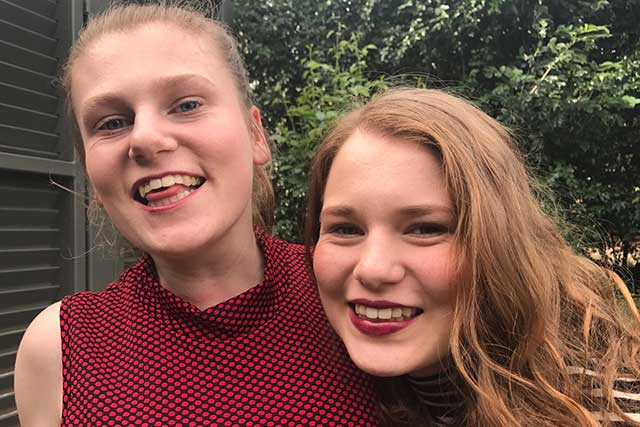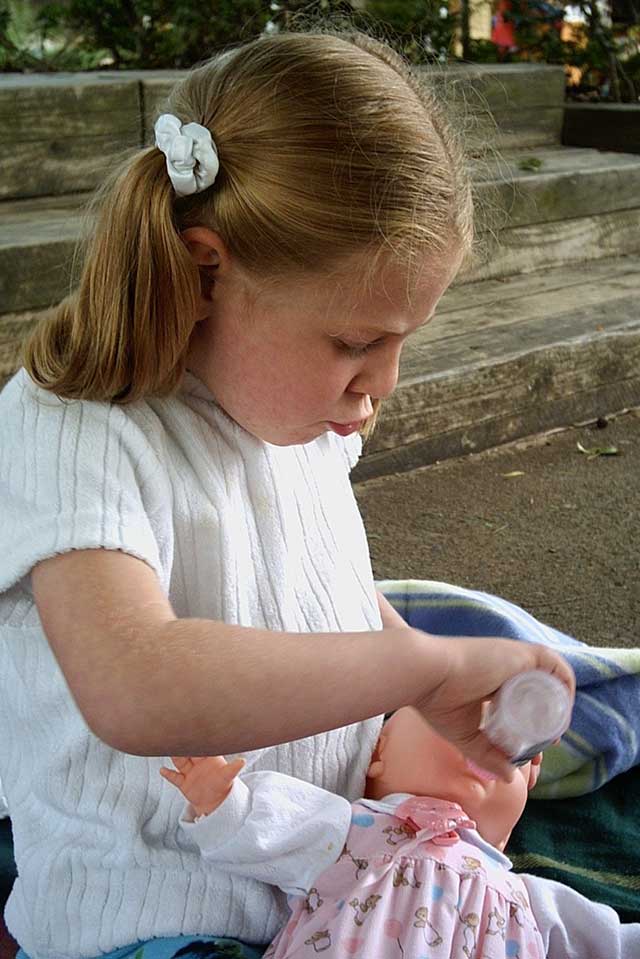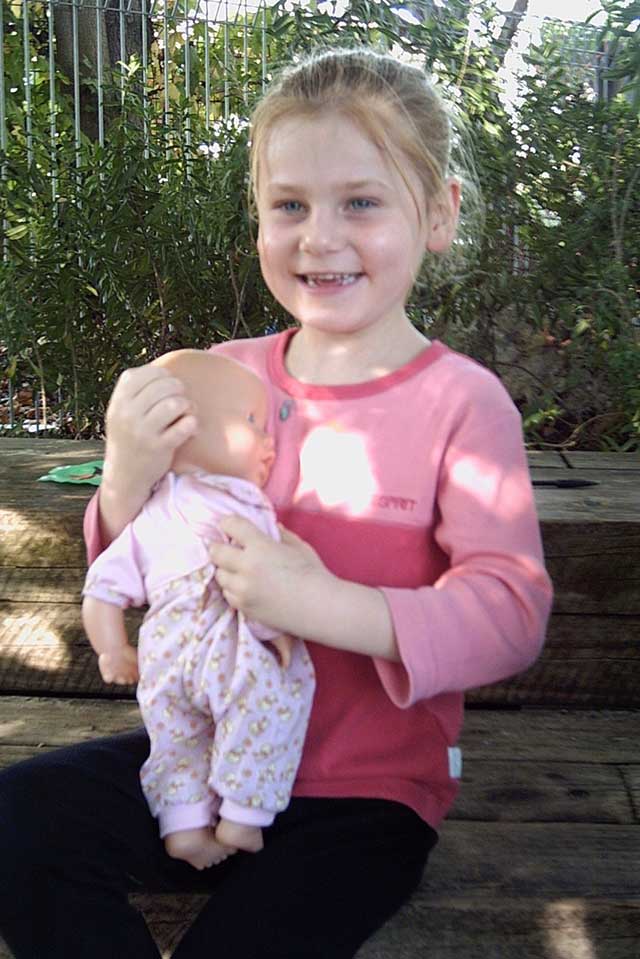Lili was born a healthy baby but contracted severe meningitis at 8 weeks old. This caused significant brain damage resulting in a developmental delay. Her remarkable recovery was through her sheer determination to survive and achieve.
For the first 3 years of her life Lili smiled her way through intensive therapies which helped her to walk and develop her fine motor skills. However her ability to communicate was significantly delayed and stepping outside her familiar environment was very traumatic.
From Mum
I was nervous when I arrived at yet another childcare centre seeking a place for my child. Lili’s developmental delay was severe and I had been rejected from four other places, but my understanding that these people from Macquarie University helped children with disabilities gave me hope. Lili was anxious too as new people and environments terrified her, so we hung on to each other. I look back on that day as the most life-changing day for Lili and our family. We discovered special education.
Soon our girl began to lose her fear and mistrust of the unknown. Her dependence on me decreased and she began to talk. The other children didn’t place labels or limitations on her; they saw her as simply one of the kids who did things differently. Surrounded by people who recognised potential in our child, we were given hope. I gained the confidence to cease other interventions that were stressful and costly.
No mainstream school could cater for Lili’s needs, so I had no choice but to send her to a special school. I worried about segregation until Coral Kemp wisely pointed out to me that inclusion happened in many forms and that Lili could and should participate in her community – and she does.
Our Lili, School Captain at Clarke Road School, completed her HSC in 2017 without any stress! She is a social, energetic and happy young woman with the world at her feet. She is surrounded by a group of family, friends and professionals who ensure she has the best. We all learn from her. I remain grateful that STaR instilled a belief in me that my child can learn.



From Dr Coral Kemp
Margaret (mum) had struggled to find an early childhood centre willing to enrol Lili because of her significant delay in most areas of development. At that time Lili’s most notable difficulties were in the area of language, self-help and social skills. The fact that children with a range of ages and skills can be enrolled in a childcare centre meant that Lili could be easily accommodated in the centre. The individualised STaR program delivered one-to-one and in small groups meant that Lili also had a program specifically designed to meet her developmental needs.
Lili fitted into the centre beautifully. Over the next three years she engaged, and was engaged by, her peers who supported her language development and encouraged her to try new things. By the time Lili left the program at the end of 2004 it was hard to pick her in a group of her typically developing peers. In fact, I challenged a visiting officer from the Special Education Directorate of the Department of Education to do just that. Lili was sitting in a small group of children while one of the educators was reading a story. She was thoroughly engaged while the story was read to the group. It was no wonder that our visitor was not able to identify the child with a disability.
When it was time for Lili to go to school, Margaret decided that significant health concerns meant that a special school was more likely to meet Lili’s needs than was a mainstream kindergarten class. We supported that choice in the knowledge that Margaret was still committed to inclusion in the broader sense. Lili is and always has been included: in her immediate and extended family and in the wider community.

